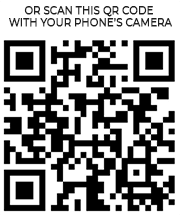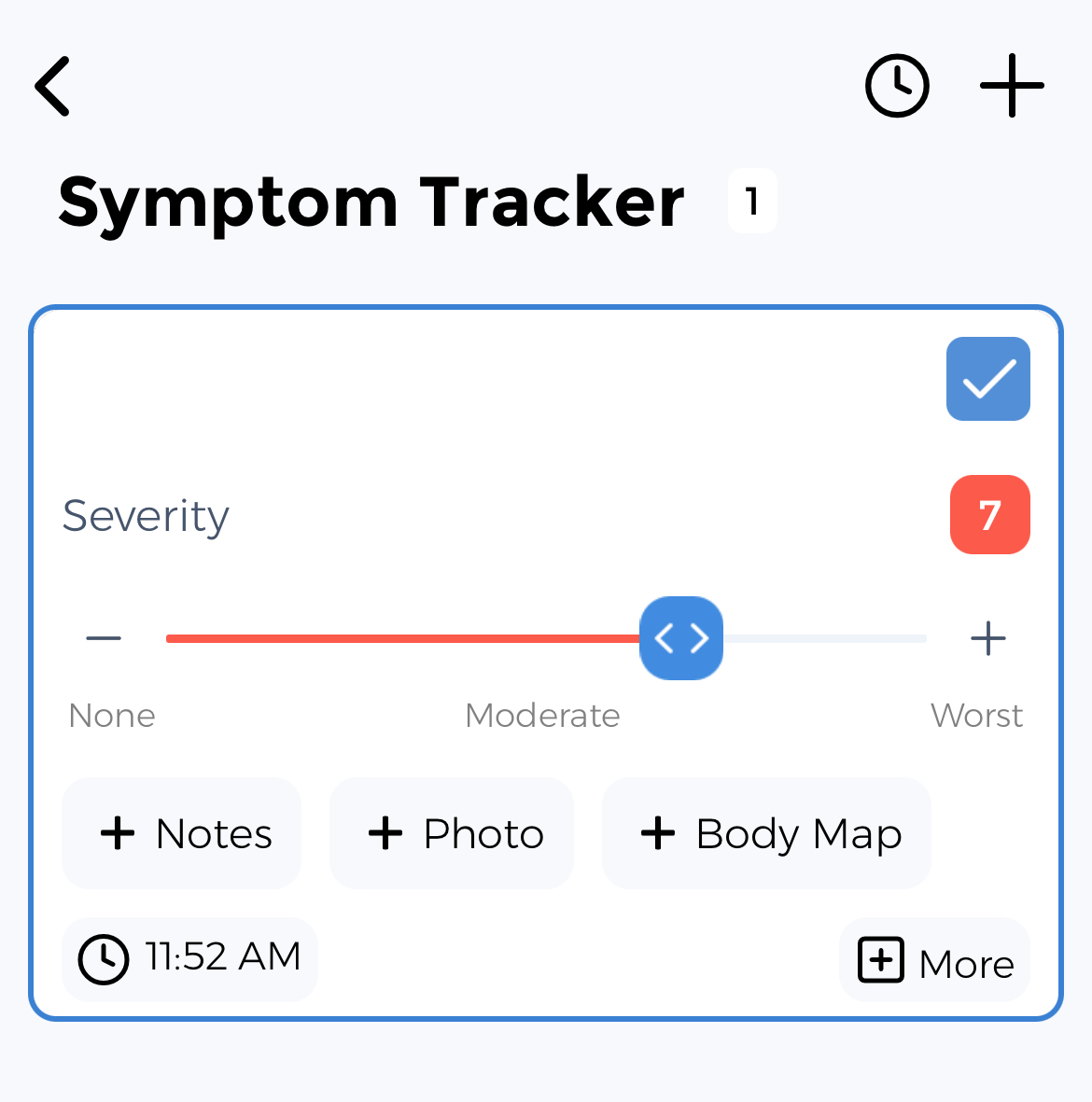Arteriovenous Malformation Symptom Tracker: Your Health Assistant
Living with Arteriovenous Malformation means dealing with headaches, seizures, muscle weakness, and more. But here's the truth: Data is your most powerful tool. Every logged symptom reveals patterns—so you can take informed action.
Arteriovenous malformations (AVMs) are abnormal tangles of blood vessels connecting arteries and veins, disrupting normal blood flow and oxygen circulation. They can occur anywhere in the body but are most common in the brain and spine. Tracking symptoms helps monitor for complications and treatment effectiveness.
Key Arteriovenous Malformation Symptoms You Should Track
Struggling with symptoms like these? Tracking them reveals patterns, triggers, and how they impact your daily life.
Headaches
Seizures
Muscle weakness
Numbness
Vision problems
Difficulty speaking
Confusion
Dizziness
Balance problems
Bleeding
Track Your Arteriovenous Malformation Treatments
Tracking how these common treatments affect your symptoms can help you and your healthcare provider optimize your care plan:
Our tracker helps you monitor when you take medications and how they affect your symptoms over time.
Standardized Arteriovenous Malformation Assessments
Complete these evidence-based assessments in the App to measure your severity and monitor your progress:
⚡ Knowledge Is Your Superpower
The difference between feeling overwhelmed by Arteriovenous Malformation and feeling in control starts with data. When you track your symptoms, you transform uncertainty into clarity. Every data point brings you closer to understanding your unique patterns.
It's free to try for anyone—whether you're managing your own condition, supporting a child, helping an aging parent, or assisting a partner. Our tracker adapts to your specific role in the health journey.
How the CareClinic Arteriovenous Malformation Symptom Tracker Adapts to Your Needs
Adults
Caregivers
Parents of Children
Young Adults
Your Complete Arteriovenous Malformation Management Toolkit
Uncover Patterns & Insights
Map your Arteriovenous Malformation symptoms like a detective solving a case.
Understand Your Medication's Impact
Turn guesswork into strategy. See how treatments affect your well-being with clear health insights.
Objectively Measure Your Progress
Use clinically validated tools to objectively measure your progress.
Other Tools You May Like...
Plus 2 more specialized tracking tools available
Access All Tracking ToolsAlso Supports Other Conditions Like
Aneurysm Tracker
Aneurysm warriors use our tracker to monitor pain (location depends on aneurysm site), pulsating sensation.
Stroke Tracker
Stroke warriors use our tracker to monitor numbness or weakness, confusion.
Hemorrhage Tracker
Hemorrhage warriors use our tracker to monitor External: visible blood loss, Internal: depends on location - e.g., abdominal pain/swelling (abdominal), headache/neurological changes (brain), bloody/tarry stool (GI), coughing blood (lungs), bruising.
Epilepsy Tracker
Epilepsy warriors use our tracker to monitor seizures, temporary confusion.
Success Stories from Our Community
"After my diagnosis with Arteriovenous Malformation, I felt lost. This tracker became my guide. I could predict when difficulty speaking would flare up, and that knowledge alone made a huge difference."
"After struggling with Arteriovenous Malformation symptoms for years, this tracker helped me gained more good days than bad. After my symptoms started affecting my relationships, I now feel like I have a secret weapon."
Take Control of Your Arteriovenous Malformation Journey
Transform from feeling like a passive patient to becoming an informed self-advocate. Join thousands who've discovered new insights about their condition.
Designed by people who understand the daily challenges of managing chronic conditions, we're here to support you and your ❤️ ones.
Download Your Arteriovenous Malformation Tracker NowYour Data is Protected
Private & Secure
HIPAA Compliant
GDPR Compliant
Never Sell Data
Your data is yours: You get full control over who can view your information. CareClinic keeps all your data secure and encrypted.
References based on studies by:

